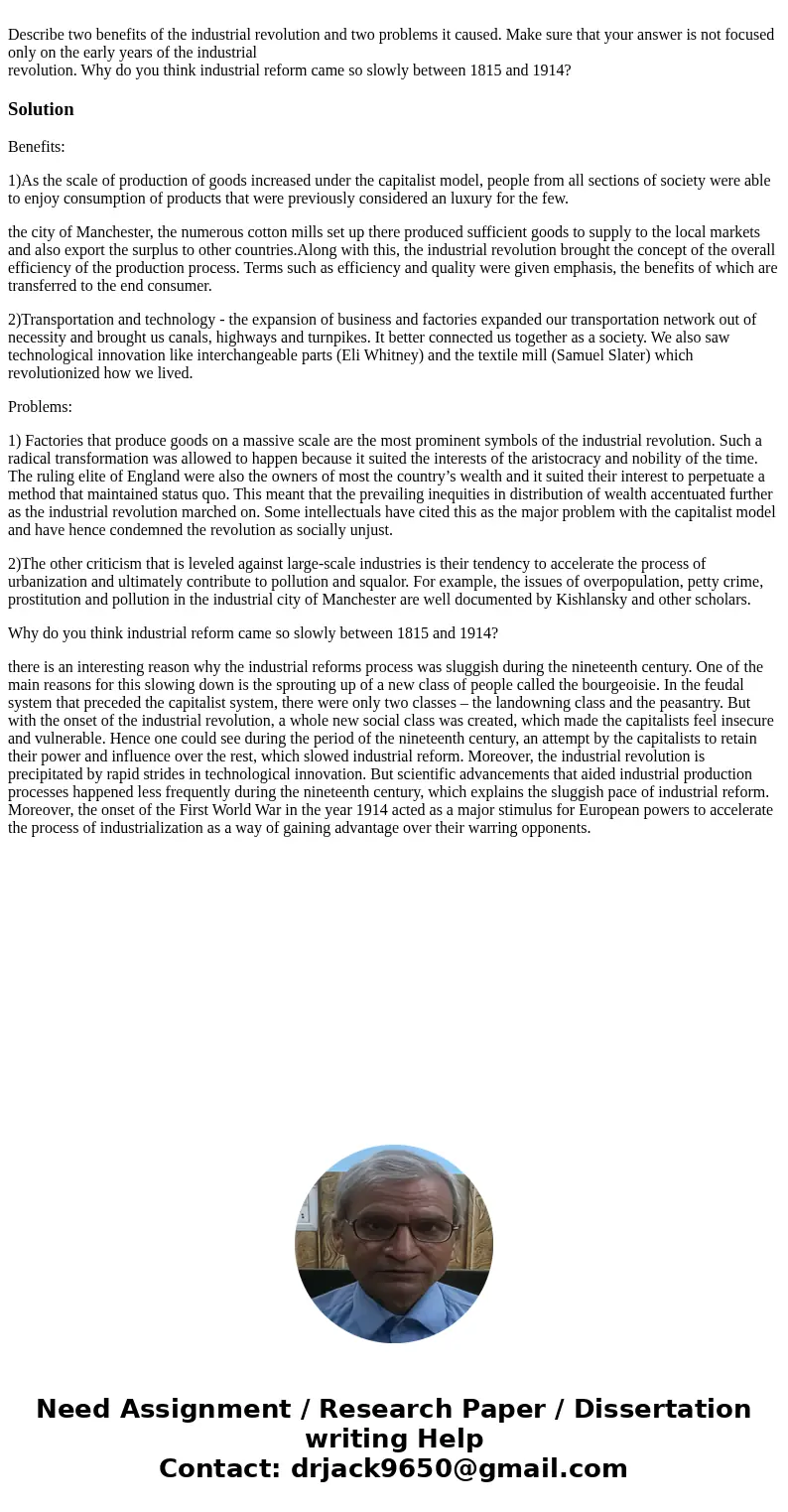Describe two benefits of the industrial revolution and two p
Describe two benefits of the industrial revolution and two problems it caused. Make sure that your answer is not focused only on the early years of the industrial
revolution. Why do you think industrial reform came so slowly between 1815 and 1914?
Solution
Benefits:
1)As the scale of production of goods increased under the capitalist model, people from all sections of society were able to enjoy consumption of products that were previously considered an luxury for the few.
the city of Manchester, the numerous cotton mills set up there produced sufficient goods to supply to the local markets and also export the surplus to other countries.Along with this, the industrial revolution brought the concept of the overall efficiency of the production process. Terms such as efficiency and quality were given emphasis, the benefits of which are transferred to the end consumer.
2)Transportation and technology - the expansion of business and factories expanded our transportation network out of necessity and brought us canals, highways and turnpikes. It better connected us together as a society. We also saw technological innovation like interchangeable parts (Eli Whitney) and the textile mill (Samuel Slater) which revolutionized how we lived.
Problems:
1) Factories that produce goods on a massive scale are the most prominent symbols of the industrial revolution. Such a radical transformation was allowed to happen because it suited the interests of the aristocracy and nobility of the time. The ruling elite of England were also the owners of most the country’s wealth and it suited their interest to perpetuate a method that maintained status quo. This meant that the prevailing inequities in distribution of wealth accentuated further as the industrial revolution marched on. Some intellectuals have cited this as the major problem with the capitalist model and have hence condemned the revolution as socially unjust.
2)The other criticism that is leveled against large-scale industries is their tendency to accelerate the process of urbanization and ultimately contribute to pollution and squalor. For example, the issues of overpopulation, petty crime, prostitution and pollution in the industrial city of Manchester are well documented by Kishlansky and other scholars.
Why do you think industrial reform came so slowly between 1815 and 1914?
there is an interesting reason why the industrial reforms process was sluggish during the nineteenth century. One of the main reasons for this slowing down is the sprouting up of a new class of people called the bourgeoisie. In the feudal system that preceded the capitalist system, there were only two classes – the landowning class and the peasantry. But with the onset of the industrial revolution, a whole new social class was created, which made the capitalists feel insecure and vulnerable. Hence one could see during the period of the nineteenth century, an attempt by the capitalists to retain their power and influence over the rest, which slowed industrial reform. Moreover, the industrial revolution is precipitated by rapid strides in technological innovation. But scientific advancements that aided industrial production processes happened less frequently during the nineteenth century, which explains the sluggish pace of industrial reform. Moreover, the onset of the First World War in the year 1914 acted as a major stimulus for European powers to accelerate the process of industrialization as a way of gaining advantage over their warring opponents.

 Homework Sourse
Homework Sourse